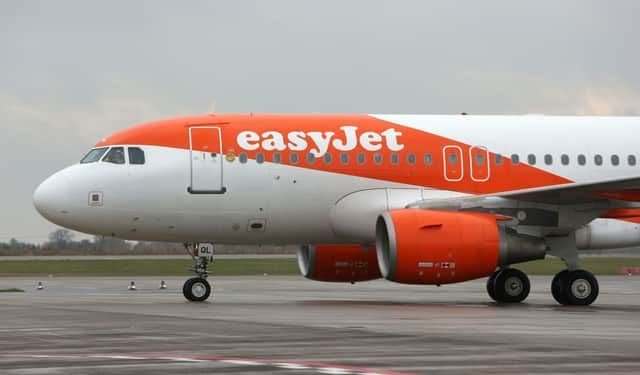Warning over easyJet medication rules that could stop you boarding
This article contains affiliate links. We may earn a small commission on items purchased through this article, but that does not affect our editorial judgement.


EasyJet passengers are being urged to check the airlines’ rules on medication before travelling or they could be denied boarding.
The British Medical Association (BMA) has warned that some airlines, including easyJet, are asking travellers to provide documents at security for medicine they have packed in their carry-on luggage.
Advertisement
Hide AdAdvertisement
Hide AdTravellers have reportedly been asked to show a letter from their GP for the medicine, despite only needing a prescription.
BMA’s GP Committee said in a statement: "It has been brought to our attention that some airlines are advising that travellers bringing medication in their hand luggage should bring a letter from their medical practitioner confirming the type of medication and what it is for.
"We will raise this issue with the airline, but in the meantime, we would remind practices that patients can print off their medical record from the NHS app, or alternatively, practices are able to charge for travel-related requests for information."
What does easyJet guidance say?
EasyJet guidance states that travellers should bring any medication in their hand luggage, alongside a “letter” from their “medical practitioner” confirming the type of medication and what it is for.
Advertisement
Hide AdAdvertisement
Hide AdA spokesperson for the airline told Pulse that the advice only applies to prescribed medication and that passengers can bring a copy of their prescription instead of a GP letter.
They added that travellers bringing prescribed medication must bring a medical certificate or a copy of their prescription, and must also present a medical certificate to airport security if any medicines in liquid or gel form exceed 100ml.
Does the guidance apply on all airlines?
The government website states that travellers are allowed to carry the following in hand luggage when travelling abroad:
essential medicines of more than 100ml, including liquid dietary foodstuffs and inhalersmedical equipment, if it’s essential for your journey
Advertisement
Hide AdAdvertisement
Hide AdTravellers will need supporting documentation from a relevant medical professional, such as a letter from a doctor or a copy of a prescription.
Airport staff might also need to open the containers to screen the liquids at the security point. Medical equipment is screened separately.
The following medicines are all permitted in both hold and hand luggage:
- Tablets and capsules
- Essential liquid medicines
- Hypodermic syringes
- Inhalers
- Cooling gel packs
- Medical equipment (for example CPAP and TENS machines)
- Special food and liquids needed for medical reasons
If passengers require an oxygen cylinder, they should contact the airline they are flying with to check on the rules.